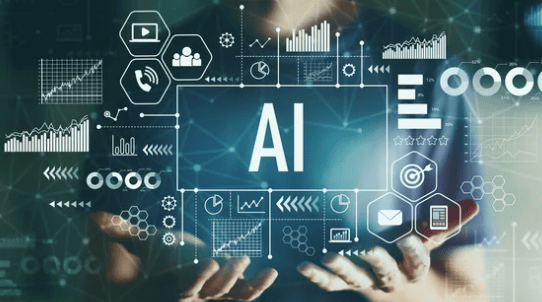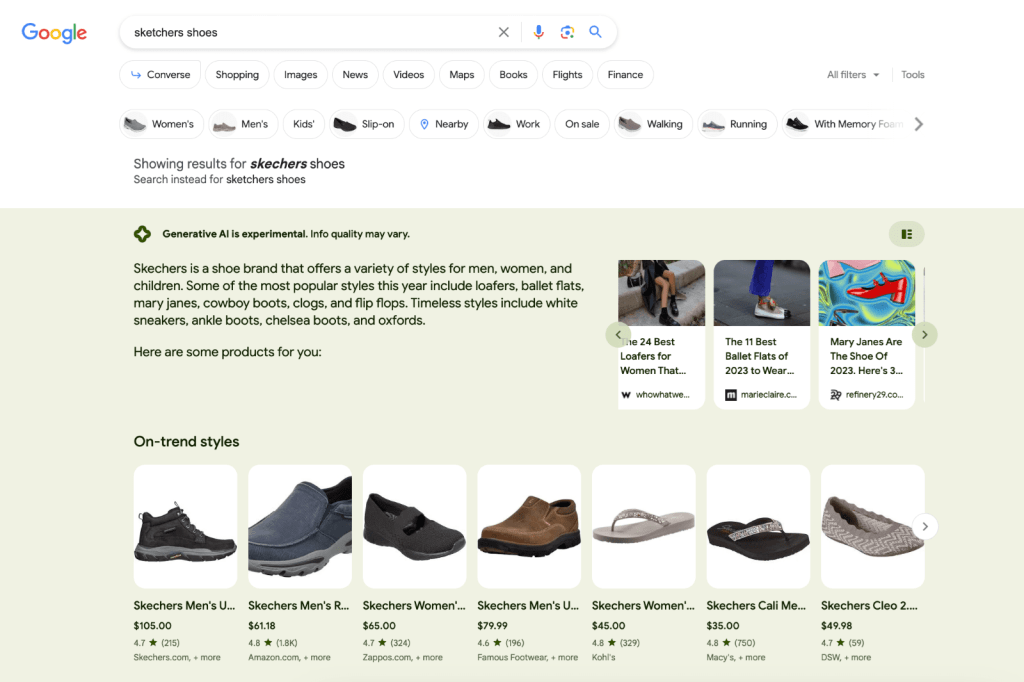Artificial intelligence (AI) is transforming the digital landscape, making outdated SEO tactics ineffective. As search engines use AI to better predict user intent, it is crucial to overhaul our strategies, integrating human creativity with AI efficiency to maintain an edge on the competition. Like or not AI has fast become a part of search and SEO and as digital marketers we need to learn how we can best use AI to achieve our goal of marketing ours or our clients’ websites effectively.

How AI Will Replace Keywords with User Intent:
Up until recently search engines used keyword matching to show the user search results relevant to their search keyword. This has slowly been changing with the introduction of Google Rankbrain, an AI machine learning-based search engine algorithm that processes search results and provides more relevant search results for users.
With the trailing of Google Search Generative Experience (SGE), Modern SEO focuses on aligning with user goals and addressing pain points, rather than merely counting keywords. Incorporating features like location-based services and personalized recommendations transforms searches into dynamic interactions between users and your content.
AI Content and EEAT:
Ai now gives us the ability to create content, however it does not have the personalisation aspect required to fully fit the EEAT (Experience, Expertise, Authoritativeness, and Trustworthiness) principle that Google is looking for. In short, to get high quality content we need a blend of our own experience and expertise mixed with AI content about the topic. Copying and pasting ai content as it is to a website is considered low quality content however with some human editing and experience mixed with the ai content we can achieve the goal of high quality and helpful content.

AI can draft content, embed keywords, and align with search engine results pages but the content will require a human touch and editing to make it high quality. AI does not understand things like culture, bank holidays and human experiences which may help our decision making when looking at digital marketing campaigns. This is why a blend of AI with human oversight is what is needed, for now at least.
Quality Over Quantity:
Google is already good at filtering low quality sites and content. In any given niche there are usually only 10 – 30 high quality websites and the rest are either not rated good enough to rank or on page 4 – 10 of Google where they receive very little organic traffic. With the introduction of AI this will be the same principle although how the content is created will be different as stated above.
Google SGE & Search Results:
Although the goal of high quality and helpful content will be the same for your website, Google SGE will display the results differently. For question queries it is best to format the content as a question-and-answer format which may help Google’s AI display this content at the top of the search results. For ecommerce results it looks like there will be a shift from optimising the category pages to making sure the product pages have high quality content and information to satisfy long tail ecommerce queries.

AI reshaping search:
The future of search will not be about keywords but about the satisfying intent of the user (which we currently do through keyword search). AI has (or will have) a better understanding of search intent when compared with traditional keyword search so rather than doing SEO to target specific keywords, we will be targeting to satisfy user intent. In conclusion the near future of AI for SEO will depend on our ability to blend AI with human experience and expertise.
AI is very much in its infancy, and it is still very much in the testing phase but it is only a matter of time before it improves and changes the nature of search forever so as always with digital marketing it is adapt or be left behind!
